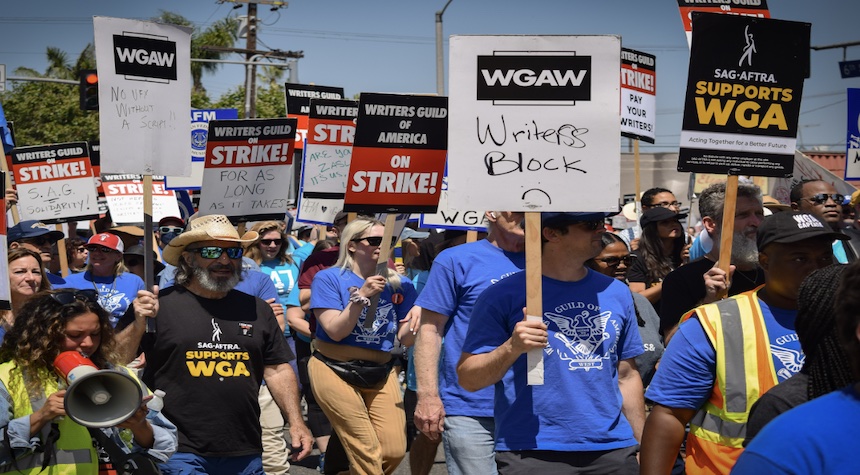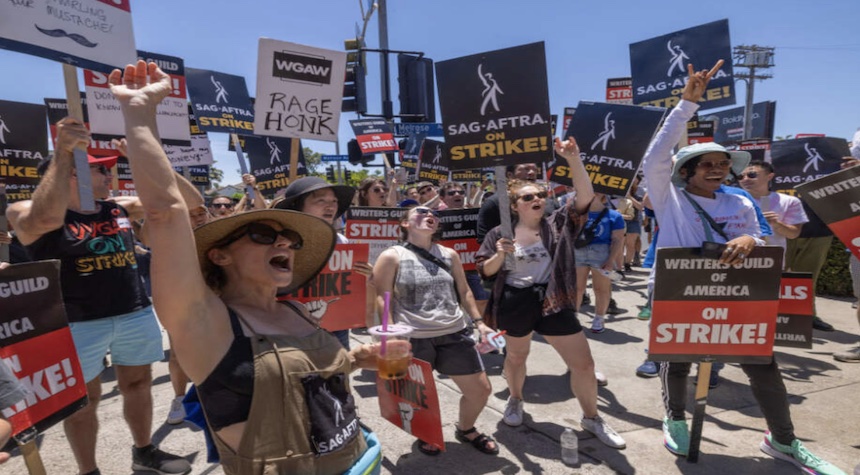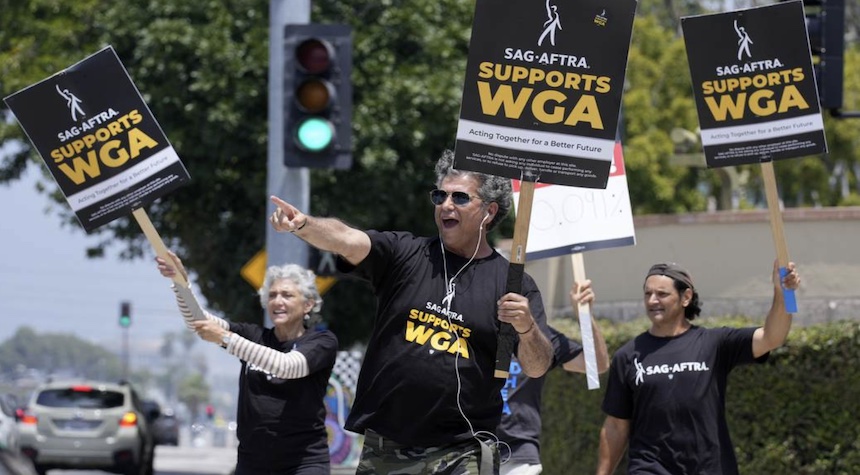I almost feel like I have to remind everyone that Hollywood has been all but shut down due to parallel strikes by the Writers Guild of America and the actors’ union SAG-AFTRA. This has led to the majority of work in the entertainment industry coming to a halt. The strikes have been front-page news in trade publications, but outside the industry, there hasn’t been much support or interest. You won’t find many posts on social media about the strike.
It is possible that this lack of public support has led to a lack of encouraging negotiations. It almost seems that the studios will wait until the outrage of the customers subsides. In the meantime, other problems are emerging internally. As tensions rise within the WGA, the WGA is struggling to agree on terms with the AMPTP (the studio’s representative body).

The Wrap reports that the WGA has been in heated discussions with prominent writers of the guild who are pushing the WGA to better negotiate to resolve the four-month strike. The two groups haven’t met since mid-August. They are currently at odds over who will present the next round of contract proposals first.
While the situation is stalemated, daytime talk show producers are preparing to start their new seasons. The announcement that the “Drew Barrymore Show” has begun production, preparing to begin with new shows in one week’s time, is sure to turn heads. Writers are angry about this, wondering if it means that the show is going to use scab writers and if Barrymore, a SAG member, will be allowed on air. The complex structure of guilds in the industry is brought to light.

SAG-AFTRA contracts with studios or production companies can affect their members’ work in different ways. The guild is not limited to actors or television performers. It includes everyone who performs. The guild includes talk shows, radio personalities, and actors in commercials. It also includes voice-over artists.
Different sectors have different contracting standards, so while the majority of performers have walked off the job, non-dramatic TV members such as talk show hosts and broadcast journalists who are unionized are exempted from this and are allowed to work. (I covered the conflict of interests that was presented by news personalities voting for a strike when they were not directly affected and also questioned their bias in reporting the strike which they supported. Barrymore can continue to host her daytime program even though she is not allowed to work in the acting industry or promote any content.

There are still other questions. WGA members expressed concern about her use of non-union writers when she announced that production would begin. There hasn’t been the same outrage over other shadows like “The View” that have used non-union writers. Barrymore returning to work is a cause for concern.
Sooo who is writing her opening monologue and literally everything else on this show when it starts up again next week? Scab writers?! Ughhhh gross Drew Barrymore. Gross. https://t.co/Li1hthpUm7
— Felicia Day🇺🇸 (@feliciaday) September 11, 2023
Here is where the WGA’s myopic view is revealed. Day may find it “gross,” but she ignores the reality of this strike. Drew may be offended by the few writers who walk out but she wants to ensure that a much larger number of her employees continue to work and receive their salaries. Striking members do not want to acknowledge that their Hollywood shutdown affects more people.
Crews and production support staff are directly affected by the strike. In August, it was estimated that over 17,000 jobs were lost directly as a result of the strike. The number is likely to increase, since studios have announced in the last few weeks that they will suspend production agreements with certain entities. This means that payments made over the past several months will not be made.
While this is happening, the writers engage in a rather stupid lobbying campaign. The WGA wants the state of California to approve unemployment insurance for writers who have walked out for months. They want to get paid for not working. This is not a script that anyone would want to read unless it is a comedy spec. However, this industry operates with a complete lack of common sense.
The idea of demanding compensation for leaving work will only increase the level of apathy in the public. We can live without them, and they can do without us.


